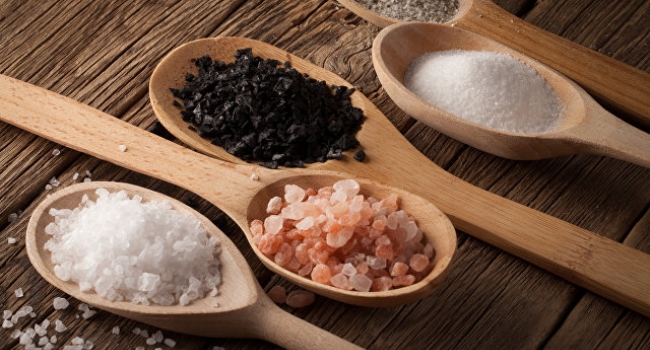- Latest news▼
-
15:11, April 24 Zombie deer disease possibly linked to hunters’ deaths

-
12:27, April 23 Appetite: Scientists found out the secret to the appeal of large portions of fast food

-
10:33, April 23 Scientists test new approach to fighting viruses

-
08:38, April 23 Ketamine may help with postpartum depression

-
22:12, April 22 Unhealthy amount of sugar found in baby food products of a well-known brand

-
19:41, April 22 Air pollution puts health of more than 1.6 billion workers globally at risk

-
17:25, April 22 Scientists found baked goods and lack of sleep to be more dangerous than alcohol

-
16:02, April 22 342 cases of measles recorded in Armenia so far in 2024

-
15:29, April 22 BrainStimulation: electrical brain stimulation alleviates anxiety and depression in the elderly

-
08:27, April 22 Cognitively stimulating jobs in midlife could lower dementia risk in old age, study finds

-
20:37, April 21 Environmental Health Perspectives: Microplastics ingested with food and water can spread from the gut to the brain

-
22:41, April 20 Scientists develop new method to safely stimulate immune cells to fight cancer

-
20:46, April 20 Blood test can determine who is at risk of developing multiple sclerosis - scientists

-
18:36, April 20 Next pandemic likely to be triggered by flu - scientists

-
12:16, April 19 Scientists grow human mini-lungs in lab

All materials
Salt-heavy diet can starve the brain of nutrients, leading to dementia: Study

Salt does more than raise blood pressure; it may also increase the risk of Alzheimer’s disease, according to a study published in Nature Neuroscience.
Plaques or tangles of proteins called beta amyloids are known markers of Alzheimer’s. However, the brains of those with dementia also have problems with the blood vessels in the brain and that “they do not look normal”, said lead researcher Dr Constantino Iadecola from Weill Cornell University.
In the study, mice were fed a high-salt diet, comparable to more than one teaspoon a day in the human diet. Singapore's recommended daily salt intake is 5g or about a teaspoon, though the average intake of salt of an average adult in Singapore is 9g per day.
Within a few weeks, the sodium-rich diet led to the dysfunction of the endothelial cells that line blood vessels and a reduced blood flow to the brain. Not only that, the mice struggled to find their way out of a maze, which indicated their loss of spatial memory. They also forgot how to build a nest. “Nest building and burrowing are spontaneous rodent behaviours and akin to activities of daily living typically altered in patients with cognitive impairment,” said Dr Iadecola.
In response to salt, the researchers found that the gut sends out an immune system to increase the number of immune cells known as T helper 17 cells or TH17. These cells boost a pro-inflammatory chemical called interleukin 17 or IL17.
IL17 is what damages the endothelial cells in the blood vessels and in turn, creates a reaction that suppresses nitric oxide. Nitric oxide “help blood vessels relax. It is also needed to make the hippocampus form new memories, and is important to cognitive function”, said Dr Iadecola.
In some types of dementia, such as Alzheimer’s, the flow of blood to the brain is believed to be reduced. Dr Iadecola said: 'Normal cognition function requires an adequate, well-regulated delivery of blood flow”. Furthermore, neurons need specific food to function. “Neurons are very finicky, like little children, they want only one kind of food: Only glucose and oxygen,” said Dr Iadecola.
The good news though, once the mice were taken off their salty diets for four weeks, their brain scans showed normal blood flow and healthy endothelial function. This showed that a change in lifestyle could help reverse or prevent those effects, said Dr Iadecola.
“This research not only highlights the importance of the immune system for brain health but also suggests that changes in the gut can play a role,' said Dr Sara Imarisio, head of research at Alzheimer's Research UK, who was not involved in the study.
“The findings highlight the importance of cutting out excess salt in our diets, as well as identifying possible new avenues in the search for treatments to help those with memory problems or dementia,” she said.
In addition to managing salt intake, Dr Iadecola also suggested that drugs that block the effects of IL17 could help to protect brains long before symptoms show up and it's too little too late.
Follow NEWS.am Medicine on Facebook and Twitter
- Video
- Event calendar
- Archive
- Most read
month
week
day
- JAMA Oncology: Urine test can help rule out high-grade prostate cancer with almost 100% accuracy, study shows 1240
- Daily Mail: Elderly woman in China gets infected with brain-eating amoeba 1186
- Obesity: exercising before breakfast helps you lose weight faster 1168
- The Conversation: childhood trauma can cause pathological hoarding 1164
- Scientists grow human mini-lungs in lab 1131
- Next pandemic likely to be triggered by flu - scientists 835
- Scientists found baked goods and lack of sleep to be more dangerous than alcohol 758
- 342 cases of measles recorded in Armenia so far in 2024 715
- Blood test can determine who is at risk of developing multiple sclerosis - scientists 697
- Scientists develop new method to safely stimulate immune cells to fight cancer 693
- Cognitively stimulating jobs in midlife could lower dementia risk in old age, study finds 675
- BrainStimulation: electrical brain stimulation alleviates anxiety and depression in the elderly 627
- Air pollution puts health of more than 1.6 billion workers globally at risk 492
- Unhealthy amount of sugar found in baby food products of a well-known brand 484
- Ketamine may help with postpartum depression 469
- Find us on Facebook
- Poll





